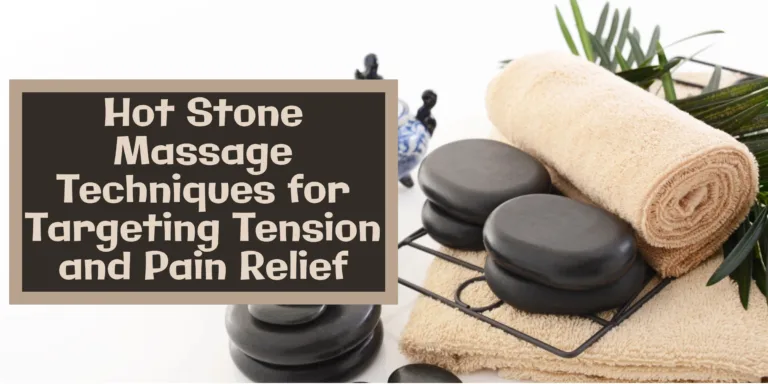Can Aromatherapy Help with Migraines ? A Science-Backed Guide
Introduction
Migraines can be absolutely debilitating, affecting millions of people worldwide. They often come out of nowhere, triggered by stress, hormonal shifts, diet, or environmental factors, and leave you searching for any kind of relief. While medications are an option, many people are turning to more natural remedies. One such remedy gaining popularity is aromatherapy. But can aromatherapy really help with migraines? In this guide, we’ll take a look at how certain essential oils might offer relief, backed by research and personal experiences.
This article is for informational purposes only and does not constitute medical advice. Aromatherapy may be beneficial for some people, but it is important to consult with a healthcare provider before using any alternative treatments, especially if you have chronic conditions or are taking medication.
What is Aromatherapy?
Aromatherapy is the practice of using plant-derived essential oils to promote physical and emotional well-being. Essential oils are extracted from flowers, herbs, and trees, containing therapeutic compounds that can be inhaled, applied topically, or diffused into the air.
Aromatherapy has been traditionally used to address various ailments, including:
- Stress and anxiety relief
- Pain management
- Sleep enhancement
- Cognitive function improvement
- Emotional well-being
With migraines being linked to stress, tension, and sensory sensitivities, aromatherapy is an appealing option for sufferers looking for holistic solutions.
The Science Behind Aromatherapy and Migraines
How Essential Oils Work on the Nervous System
Essential oils impact the brain through olfactory stimulation, activating the limbic system—responsible for emotions, memory, and pain perception. Some essential oils also have anti-inflammatory and analgesic properties, which may help reduce migraine severity.
Scientific Studies on Aromatherapy and Migraines
Several studies suggest aromatherapy can be effective in migraine management:
- A 2012 study in the European Neurology Journal found that inhaling lavender oil reduced migraine pain severity in 92 out of 129 cases.
- A 2016 study in the Journal of Herbal Medicine reported that peppermint oil applied topically had effects similar to 1,000 mg of acetaminophen in reducing tension headaches.
- Research from the University of Kiel in Germany showed that eucalyptus and menthol essential oils help relieve headaches by promoting relaxation and reducing muscle tension.
While more large-scale studies are needed, current findings suggest that aromatherapy has potential as a complementary therapy for migraines.
Best Essential Oils for Migraine Relief
Different essential oils offer unique benefits when it comes to migraine management:
1) Lavender Oil
- Known for its calming and sedative properties
- Helps reduce stress, anxiety, and tension
- Can be inhaled, diffused, or applied topically Learn more
2) Peppermint Oil
- Contains menthol, which cools and soothes pain
- Improves blood flow and reduces muscle contractions
- Effective when applied to temples and forehead Learn more
3) Eucalyptus Oil
- Opens up nasal passages, reducing sinus pressure headaches
- Has anti-inflammatory properties
- Best used in steam inhalation or massage Learn more
4) Rosemary Oil
- Improves circulation and reduces stress-induced headaches
- Contains anti-inflammatory and analgesic properties
- Works well in head massages or diffusers Learn more
5) Chamomile Oil
- Helps relieve stress, anxiety, and tension headaches
- Has anti-inflammatory effects
- Ideal for bedtime use to promote relaxation
How to Use Aromatherapy for Migraine Relief
1) Inhalation Techniques
- Add 3-5 drops of essential oil to a bowl of hot water, cover your head with a towel, and inhale deeply.
- Use an essential oil diffuser to spread the aroma throughout the room.
- Apply a few drops of oil on a tissue and breathe in the scent.
2) Topical Application
- Mix essential oils with a carrier oil (like coconut or jojoba oil) and apply to temples, forehead, or the back of the neck.
- Perform a gentle massage using diluted oils to relieve tension and enhance circulation.
3) Aromatherapy Baths
- Add 8-10 drops of essential oil to warm bathwater.
- Enhance relaxation by mixing with Epsom salts.
4) Pillow and Linen Sprays
- Add 8-10 drops of essential oil to warm bathwater.
- Enhance relaxation by mixing with Epsom salts.
Can Aromatherapy Help with Anxiety, Depression, and Migraines ?
Migraines are often linked to mental health conditions like anxiety and depression. Since aromatherapy is widely used for mood enhancement, it can serve as a dual-purpose remedy.
- Can aromatherapy help with anxiety? Studies show that lavender, bergamot, and frankincense help reduce stress and promote relaxation.
- Can aromatherapy help depression? Citrus oils like lemon and orange are known to elevate mood and combat feelings of sadness.
- Can aromatherapy help with migraines? When stress is a migraine trigger, using essential oils to calm the nervous system can help prevent attacks.
By addressing both emotional and physical triggers, aromatherapy offers a holistic approach to migraine relief.
Real-Life Success Stories: How Aromatherapy Helped Migraine Sufferers
Case Study 1: Sarah’s Journey with Lavender Oil
Sarah, a 34-year-old teacher, suffered from chronic migraines due to stress. After incorporating lavender essential oil into her bedtime routine, she noticed a significant reduction in migraine frequency. She now uses a lavender pillow spray and diffuser to manage stress-related headaches.
Case Study 2: Mark’s Peppermint Oil Experience
Mark, a 42-year-old IT professional, struggled with tension headaches from screen time. Applying peppermint oil to his temples provided immediate relief. He now carries a roller bottle of peppermint oil for on-the-go migraine management.
Potential Risks and Precautions
While aromatherapy is generally safe, here are some precautions to consider:
- Always dilute essential oils before applying to the skin.
- Avoid ingestion unless advised by a healthcare professional.
- Perform a patch test to check for allergic reactions.
- Pregnant women and individuals with asthma should consult a doctor before use.
Conclusion: Is Aromatherapy a Viable Migraine Treatment?
So, can aromatherapy help with migraines? The evidence suggests that it can, though it may not be a complete substitute for medication. Aromatherapy offers a natural, accessible, and side-effect-free way to help manage migraine symptoms. By incorporating essential oils like peppermint, lavender, and eucalyptus into your daily routine, you might find some much-needed relief when those headaches strike. It’s certainly worth considering as a complementary approach to managing migraines.
FAQ
1. Can aromatherapy completely cure migraines?
No, aromatherapy cannot completely cure migraines, but it can help manage symptoms and reduce their frequency by promoting relaxation, improving circulation, and easing stress-related triggers.
2. What is the best essential oil for migraines?
Lavender and peppermint oils are among the most effective essential oils for migraine relief. Lavender helps with relaxation and stress reduction, while peppermint contains menthol, which provides a cooling effect that relieves headache pain.
3. How should I use essential oils for migraines?
You can use essential oils through inhalation (diffusers, steam inhalation, or direct inhalation from a tissue), topical application (diluted with a carrier oil and massaged onto temples or neck), or aromatherapy baths for relaxation.
4. Can aromatherapy help with anxiety and depression-related migraines?
Yes, since stress, anxiety, and depression are common migraine triggers, aromatherapy can be beneficial. Essential oils like lavender, chamomile, and bergamot have been shown to reduce anxiety and promote a sense of calm.
5. Is it safe to apply essential oils directly to my skin?
No, essential oils should always be diluted with a carrier oil (such as coconut or jojoba oil) before applying them to the skin to avoid irritation. A general guideline is to use 1-2 drops of essential oil per teaspoon of carrier oil.
6. Can I ingest essential oils to relieve migraines?
It is not recommended to ingest essential oils unless under the supervision of a certified aromatherapist or healthcare provider. Some essential oils can be toxic if consumed.
7. How quickly does aromatherapy work for migraines?
The effects of aromatherapy can vary from person to person. Some people experience relief within minutes of inhaling or applying essential oils, while others may need consistent use over time to notice improvements.
8. Are there any side effects of using essential oils for migraines?
Essential oils are generally safe when used properly, but potential side effects include skin irritation, allergic reactions, and headaches from strong scents. Pregnant women, children, and individuals with asthma or allergies should consult a doctor before use.
9. Can I use aromatherapy alongside migraine medications?
Yes, aromatherapy can be used as a complementary therapy alongside migraine medications. However, consult your doctor before incorporating essential oils into your migraine management plan.
10. What’s the best way to prevent migraines using aromatherapy?
To help prevent migraines, use essential oils regularly for stress management. Diffuse lavender or chamomile at bedtime, apply peppermint oil to your temples during stressful moments, and incorporate relaxing essential oils into your self-care routine.






